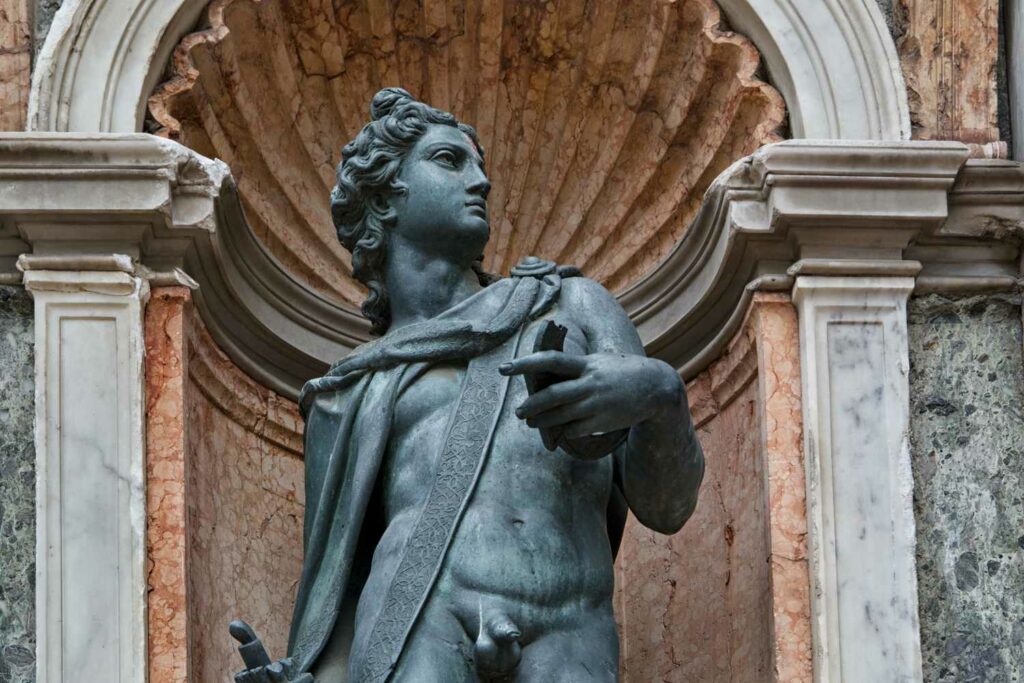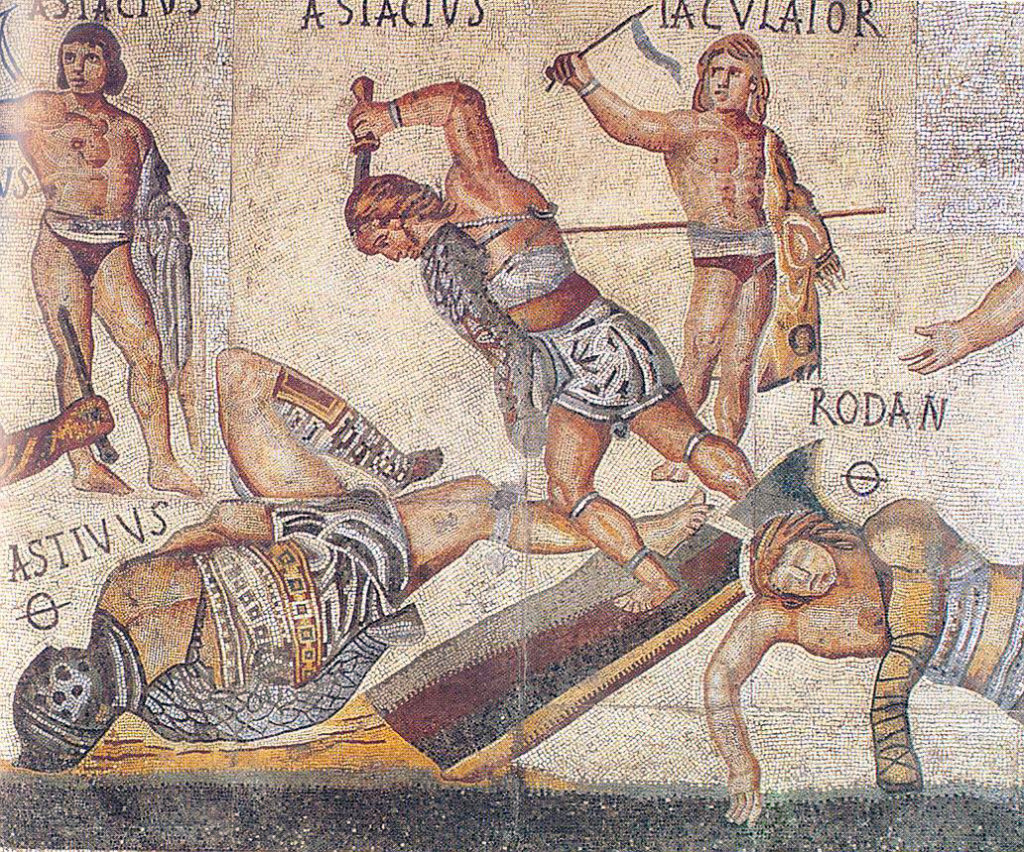Apollo was a god revered by both the Greeks and the Romans. He is the only one of the pantheon to be called by the same name in both cultures.
He was seen as the perfect man: wise, powerful, and eternally young. Apollo was peaceful – at least, more so than most of the volatile Greek and Roman gods – and civilized.
To the Greeks, Apollo was harmony personified. They associated him with light and wisdom. His role in Roman culture was much the same; they looked to him for stability and healing.

Greece and the Olympians
Apollo was one of the twelve primary deities of the Greeks. Originally, he was seen as a prophet and also associated with healing. Centuries later, he came to personify light and music.
In Greek mythology, he resided on Mount Olympus with his father, Zeus. Apollo’s mother, Leto, was another old Greek God – like Zeus, she was the daughter of Titans.
In early accounts, around 700 BC, Leto was said to be one of the many wives of Zeus. As centuries passed and Hera was adopted as his only wife, the story changed. Leto was one of his many extramarital affairs, and Hera pursued her with relentless vengeance.
Leto fled and gave birth to her children, Apollo and Artemis, away from Olympus. These two gods were not always referred to as twins; that’s another piece of the mythology that evolved over time.
Hera sent her son Ares to threaten anyone who dared offer sanctuary to Leto. She eventually found shelter on the island of Delos after being turned away by other places that were too afraid of Hera to offer her safe haven. Leto labored for nine days with Apollo before the goddess of childbirth (who had been detained by Hera) finally arrived and saw him into the world.
Apollo and his sister Artemis, goddess of the hunt, were said to have invented archery. Both were often shown holding a bow and arrows. In some stories, Artemis was Apollo’s older sister. In others, she was his twin.
Apollo was widely believed to be his father’s favorite son. Zeus gifted him a golden chariot pulled by white swans. He also granted Apollo the power of divination.
Like other holy sons to come, Apollo was seated at the right hand of the father.
In various stories, Apollo defended his mother from monsters sent by Hera. He slayed Python, a serpent dragon, and the giant Tityos.
Apollo had many children of his own and played a role in raising and educating them. He also fostered and adopted the abandoned sons of other gods. Apollo taught these young gods to be seers and archers. The most famous of his sons was the god Asclepius, the god of medicine.
Not all of Apollo’s sons were gods. Many were mortal, such as the Trojan princes Troilus and Hector. They were killed by Achilles during the Trojan War. So was Apollo’s son Tenes, the king of Tenedos. Apollo eventually took revenge on Achilles by guiding the arrow that killed him, shot by the Trojan prince Paris.
Some of his children were musicians or muses. Others were seers or high priests. Over twenty sons of Apollo founded their own cities. One son, Aristaeus, was eventually granted immortality and became the god of animal husbandry, beekeeping, and cheese-making.
The Many Roles of Apollo
The Greeks associated Apollo with many good things, such as archery, medicine, truth, music, light, and poetry. His primary roles in Greek theology were to ward off evil and grant seers the power of prophecy.
Apollo had the power to cure or kill; he could heal the sick but also bring deadly illness with his arrows.
The Greeks looked to Apollo to watch over their children and see them safely through to adulthood. As the god of medicine and knowledge, he oversaw both their health and their education. He was more strongly associated with boys, while his sister Artemis was the protector of girls.
He was the god of music. As such, he presided over song and dance as well as poetry. He was also the inventor of string music and was often shown holding a lyre.
Apollo was also the god of public places such as roads and towns. Some Greeks regarded him as the giver of laws. Some cities consulted oracles of Apollo before putting new laws into place.
He was also the protector of shepherds and their flocks.
Apollo in Roman Times
Apollo was the only member of the pantheon to keep his own name as time went on. He still had a twin sister, but the Romans called her Diana. Their mother, who predates even the ancient Greeks, was still called Leto. Zeus became Jupiter.
In Roman myth, Apollo whispered to his mother from the womb and helped her find a safe place to give birth. Diana was born first, fully formed, and helped see her brother into the world. Apollo was born clutching a bronze sword, and within days he was the size of a grown man.
Like his predecessor, the Roman Apollo had many lovers – both male and female.
Like the Greeks before them, ancient Romans associated Apollo with music and poetry. This eventually broadened to encompass all forms of artistic creativity.
His other roles also endured. Romans considered him to be the font of all medical knowledge and also the source of prophecy and the gift of foresight.
Roman doctors such as Hippocrates adopted Apollo as their patron. People tried to stay in his favor, because illness was often thought to stem from having incurred the wrath of Apollo. During Hippocrates’ lifetime, the Romans built a temple dedicated to Apollo Medicus, meaning Apollo the doctor.
Romans revered Apollo just as the Greeks had done, and they carried them with him. He took root in far-off lands, including lands belonging to Celtic peoples who revered him as a sun god. In other parts of Europe and the United Kingdom, he was incorporated into long-standing traditions and fused with other healing deities.

